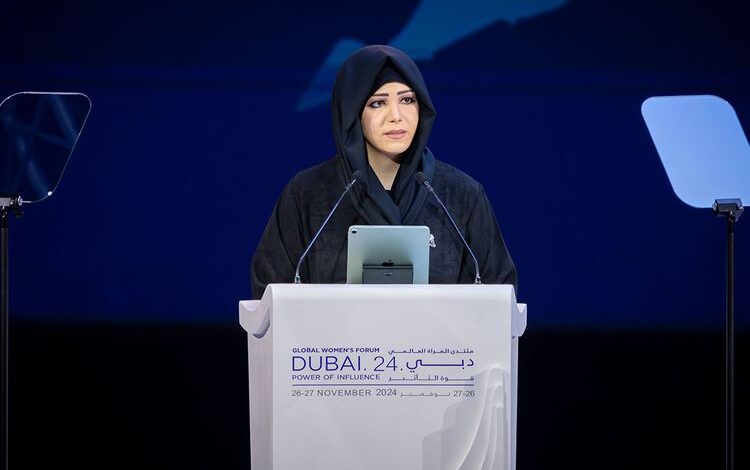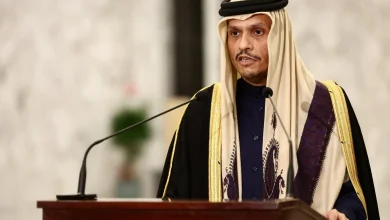
Sheikha Latifa Urges Shift in Arab Women Stereotypes
Arab women have earned 43% of science, technology, and engineering degrees in the Arab world. The world’s perception of their achievements remains sadly outdated. Sheikha Latifa bint Mohammed bin Rashid Al Maktoum addressed this issue at the Global Women’s Forum. She stressed the need to challenge these dated stereotypes about Arab women and highlighted the gap between global perceptions and Arab women’s actual accomplishments.
Old stereotypes continue to overshadow Arab women’s most important contributions to business, science, and leadership. These misconceptions create barriers and slow down gender equality progress in the region. Sheikha Latifa’s powerful message at the forum echoes a growing movement that celebrates Arab women’s achievements in today’s world.
Global Impact of Arab Women Leaders
Arab women leaders have transformed the regional landscape over the last several years. Their remarkable progress spans organizations of all sizes. The defense sector showcases some extraordinary pioneers. Sheikha Aisha bint Rashid Al Khalifa became Bahrain’s first female fighter pilot. Rayannah Barnawi wrote history as the first Arab woman astronaut.
Arab women’s presence in diplomacy continues to grow steadily. Bahrain’s foreign ministry now has women making up one-third of its workforce. The UAE’s diplomatic service shows even more impressive numbers with 49.5% female representation. Many women serve as ambassadors in major diplomatic posts worldwide. Raya Al-Hassan’s appointment as the first female interior minister in the Arab world stands out as one of the most important milestones.
Women leaders have transformed the region’s economic landscape. The numbers tell a compelling story. UAE’s public sector employs 66% women. They hold 30% of senior leadership roles. Education and health sectors show women occupying 75% of positions. Women entrepreneurs manage projects worth over AED 40 billion.
Their influence reaches well beyond traditional roles into STEM fields. Arab women continue to break new ground with their contributions to health, clean energy, and climate change research. Better education access, strong mentoring, and supportive workplace policies have helped reshape perceptions of Arab women’s capabilities. These changes have unlocked their full potential effectively.
Historical Legacy and Modern Progress
Arab women’s roles in society tell a remarkable story of determination and progress. The reform movement Al-Nahada Al-Arabia started in Egypt and quickly spread throughout the Arab world. Women’s participation grew from limited social roles to become a vital part of nation-building.
Arab countries now lead the world in STEM education with impressive numbers:
- Female STEM graduates make up 34-57% of total graduates
- UAE reports 77% female participation in higher education
- Women represent 59% of the national workforce
Legal reforms brought positive changes to women’s lives, especially with updates to family laws. The groundbreaking mudawana reform in Morocco gave women more rights in marriage and divorce. Other countries in the region followed with similar progressive changes. Women’s associations became vital platforms to advocate for change. These groups started with childcare and health awareness programs and later expanded their focus to broader social issues.
Gulf nations experienced rapid growth thanks to oil wealth and better education access. This economic growth helped women understand their rights better and claim their place in society. They broke traditional barriers and established themselves as professionals in engineering, healthcare, and many other fields. Some conservative societies still present challenges, but women continue to create spaces for dialog and cultural exchange. Their efforts steadily alter social norms and expectations.
Future Vision for Women’s Empowerment
The UAE has created a complete roadmap to speed up women’s progress in every sector. The National Policy for Empowerment of Emirati Women 2023-2031 aims to achieve these targets in the next decade:
- 20% increase in female entrepreneurship programs
- 20% growth in women’s media representation
- Expanded vocational training opportunities
- Stronger legal frameworks against discrimination
The Arab Leadership Academy for Women stands as one of the most important steps to promote regional leadership growth. This program helps the next generation of female leaders develop skills in crisis management, strategic communication, and adaptive leadership.
The UAE’s path forward relies heavily on global partnerships. Through collaboration with UN Women, the country has contributed AED 95.47 million to support gender equality programs. The Gender Balance Council now develops innovative policies to ensure women continue their work in vital sectors, especially when you have technology and innovation in focus.
Women’s integration in new industries remains a priority, with special focus on STEM fields. Women now make up 50% of the UAE’s space program workforce. These initiatives help reshape the scene and create real opportunities for women to advance in every sphere of influence.
Arab women’s remarkable achievements in science, technology, and leadership roles show a dramatic shift in the Middle East. They hold 43% of STEM-related degrees, which challenges outdated global perceptions. The UAE’s National Policy to Enable Emirati Women 2023-2031 creates clear paths toward advancement and success.
The numbers tell a compelling story. Women make up 66% of public sector employees and lead projects worth over AED 40 billion. They also represent nearly half of the UAE’s diplomatic corps. These figures highlight fundamental changes in education, workplace policies, and social attitudes. Legal reforms, better educational access, and strong mentorship programs have opened doors for Arab women to excel in their chosen fields.
Arab nations have reshaped entire industries and set new standards for gender equality. Leadership programs, mutually beneficial alliances, and focused initiatives help build frameworks that support women’s growth in all sectors. This steadfast dedication will help Arab women shape their region’s future and inspire positive change worldwide.





